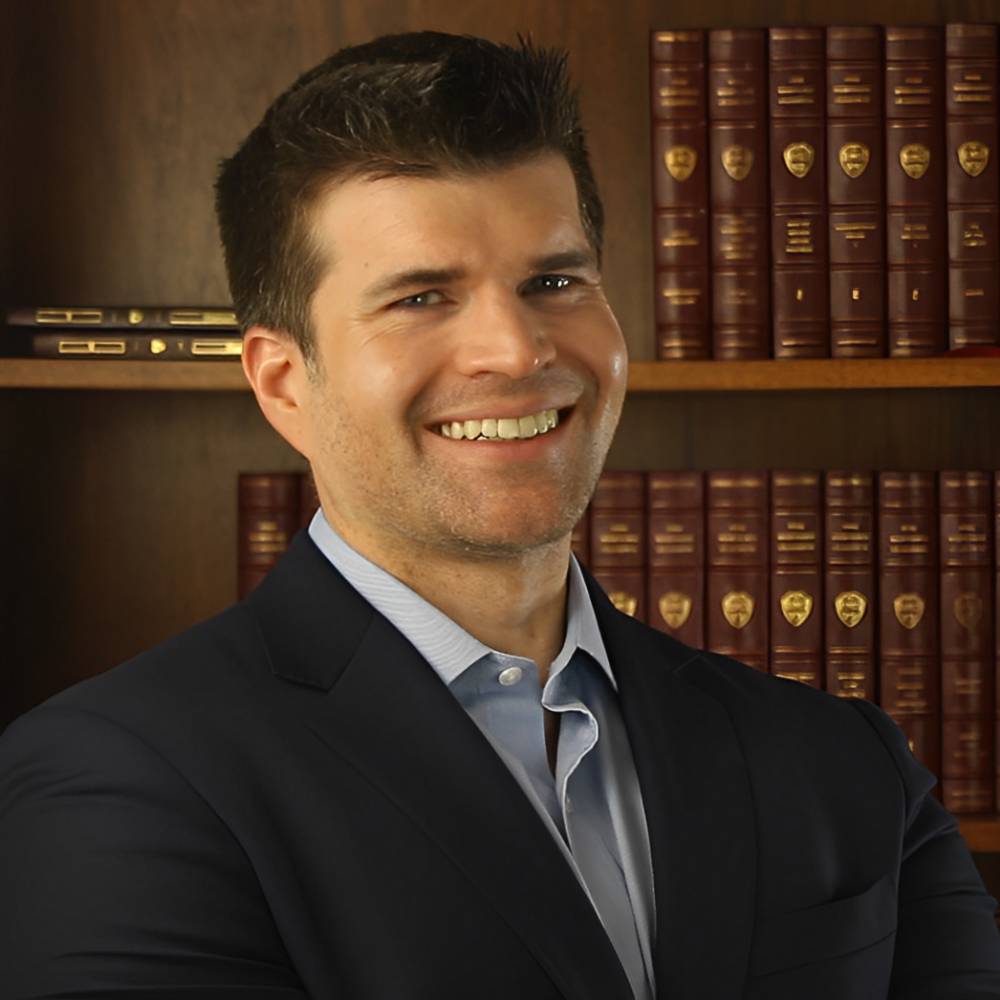False sexual abuse allegations can have devastating consequences. It is important to understand the legal process in Arizona and your rights, whether you are accused or are a victim.
What constitutes false allegations of sexual abuse?
False allegations of sexual abuse occur when someone accuses another person of committing a sexual offense that did not actually take place. These accusations can arise for various reasons, including:
- Misunderstandings or misinterpretations of events
- Mental health issues or false memories
- Revenge or attempts to gain an advantage in custody battles or divorces
- Attention-seeking behavior
- Coercion or manipulation by others
It’s important to note that false allegations are relatively rare. However, when they do occur, they can have severe consequences for the accused. The impact of such allegations can be life-altering, affecting personal relationships, professional opportunities, and overall quality of life.
Immediate steps to take when falsely accused
If you find yourself facing false allegations of sexual abuse in Arizona, consider taking the following steps:
- Remain calm and avoid confrontation with the accuser
- Do not discuss the allegations with anyone except your attorney
- Document everything related to the case, including potential alibis and witness information
- Preserve any evidence that may support your innocence
- Avoid posting about the allegations on social media or discussing them online
- Contact an experienced Phoenix sex crimes attorney immediately
These steps are crucial in protecting your rights and building a strong defense. Remember, anything you say or do can potentially be used against you in court, so it’s essential to exercise caution and seek professional guidance as soon as possible.
Understanding Arizona’s sexual abuse laws
The following are some, but not all, of the main sexual offenses defined in the Arizona Revised Statutes (A.R.S.):
- Indecent Exposure (A.R.S. 13-1402) – knowingly exposing genitals to another person, under circumstances in which the conduct is offensive to the other person.
- Public Sexual Indecency (A.R.S. 13-1403) – engaging in sexual contact or intercourse in public or placing unclothed anus or genitals on display in public.
- Sexual Abuse (A.R.S. 13-1404)
- Sexual Conduct with a Minor (A.R.S. 13-1405)
- Sexual Assault (A.R.S. 13-1406)
- Molestation of a Child (A.R.S. 13-1410)
Penalties for these offenses can be severe, especially if the alleged victim is under 15 years old. Sentences can range from probation to life imprisonment, depending on the specific charge and circumstances. Understanding these laws is crucial for anyone facing allegations, as it provides context for the potential consequences and helps in developing an appropriate defense strategy.
The investigation process
When allegations of sexual abuse are made, law enforcement and Child Protective Services (CPS) may become involved. The investigation process typically includes:
- Initial report and interview with the accuser
- Interviews with potential witnesses
- Collection of physical evidence, if available
- Forensic interviews with child victims, if applicable
- Review of medical records or examinations
- Interview with the accused (if they choose to participate)
It’s crucial to remember that you have the right to remain silent and should consult with an attorney before speaking to investigators. Your Phoenix sex crimes lawyer can guide you through this process, ensuring that your rights are protected and that you don’t inadvertently say something that could be misconstrued or used against you.
Building your defense strategy
A strong defense strategy is essential when facing false allegations of sexual abuse. Some potential approaches include:
- Gathering evidence to support your innocence
- Identifying inconsistencies in the accuser’s story
- Challenging the credibility of witnesses
- Exploring possible motives for false accusations
- Utilizing expert witnesses to provide context or alternative explanations
- Investigating the accuser’s background and history
Your attorney will help you determine the most effective defense strategy based on the specific details of your case. This may involve a combination of approaches, tailored to the unique circumstances of your situation and the evidence available.
The importance of legal representation
When dealing with false allegations of sexual abuse, it’s crucial to have experienced legal representation. A skilled criminal defense attorney can:
- Protect your rights throughout the legal process
- Guide you on what to say (and not say) to investigators
- Gather and present evidence in your favor
- Negotiate with prosecutors
- Represent you in court proceedings
- Help mitigate potential consequences
Look for an attorney with specific experience in handling sexual abuse cases in Arizona. Their expertise in local laws and procedures can be invaluable in navigating the complex legal system and building a strong defense.
Potential consequences of false allegations
Even if you’re ultimately found innocent, false allegations of sexual abuse can have lasting impacts:
- Damage to personal and professional relationships
- Loss of employment or difficulty finding work
- Emotional trauma and mental health issues
- Financial strain due to legal fees and lost income
- Stigma and damage to reputation
- Potential inclusion on sex offender registries (if convicted)
It’s essential to address these potential consequences proactively with the help of your legal team and support network. Understanding the possible outcomes can help you prepare for various scenarios and take steps to mitigate their impact on your life.
Protecting your reputation
While dealing with the legal aspects of false allegations, it’s also important to consider how to protect your reputation:
- Be cautious about what you say to others about the case
- Consider working with a reputation management professional
- Document any harassment or defamation you experience
- Seek support from trusted friends and family members
- Consider professional counseling to help cope with the emotional toll
Maintaining your reputation during this challenging time can be difficult, but it’s crucial for your long-term well-being. A proactive approach to reputation management can help minimize the damage and support your recovery process.
Coping with the emotional impact
False allegations of sexual abuse can be emotionally devastating. Consider the following strategies to help cope:
- Seek support from a therapist or counselor experienced in trauma
- Join a support group for those falsely accused of crimes
- Practice self-care and stress-management techniques
- Maintain a routine and stay engaged in positive activities
- Lean on trusted friends and family for emotional support
Taking care of your mental health is crucial during this challenging time. Don’t hesitate to seek professional help if you’re struggling to cope with the emotional toll of false allegations.
Preventing future false allegations
While you can’t always prevent false allegations, there are steps you can take to reduce your risk:
- Be cautious in personal and professional relationships
- Document interactions that could potentially be misinterpreted
- Avoid situations that could be seen as compromising
- Be aware of the risks associated with working with children or vulnerable adults
- Consider implementing personal policies, such as avoiding one-on-one situations
While these precautions can’t guarantee protection against false allegations, they can help reduce your vulnerability and provide documentation to support your defense if needed.
Understanding the legal process
If you’re facing false allegations of sexual abuse in Arizona, you may go through the following legal stages:
- Investigation
- Arrest (if probable cause is established)
- Initial appearance and bail hearing
- Preliminary hearing or grand jury indictment
- Arraignment
- Pre-trial motions and hearings
- Plea bargaining (if applicable)
- Trial
- Sentencing (if convicted)
- Appeals process (if necessary)
Your attorney will guide you through each stage of the process and advise you on the best course of action. Understanding this process can help you prepare mentally and emotionally for what lies ahead.
The role of forensic evidence
In sexual abuse cases, forensic evidence can play a crucial role. This may include:
- DNA evidence
- Medical examinations
- Digital evidence (e.g., phone records, computer data)
- Physical evidence from the alleged crime scene
If you’re falsely accused, your attorney may work with forensic experts to challenge or reinterpret evidence presented by the prosecution. Understanding the types of evidence that may be used in your case can help you and your legal team prepare a strong defense.
Dealing with Child Protective Services
If the false allegations involve a minor, Child Protective Services (CPS) may become involved. It’s important to:
- Cooperate with CPS investigators, but consult your attorney before answering questions
- Understand your rights as a parent or caregiver
- Document all interactions with CPS
- Follow any temporary orders or agreements to demonstrate compliance
Your attorney can help you navigate CPS involvement and work to protect your parental rights. Remember that CPS’s primary concern is the safety of the child, so demonstrating your commitment to cooperation and compliance can be beneficial to your case.
The importance of documentation
Throughout the process of dealing with false allegations, thorough documentation is crucial. Keep records of:
- All communications related to the case
- Witness statements and contact information
- Alibis and supporting evidence
- Interactions with law enforcement, CPS, and other officials
- Expenses related to your defense
- Any harassment or retaliation you experience
This documentation can be invaluable in building your defense and protecting your rights. It provides a clear timeline of events and can help identify inconsistencies in the allegations against you.
Do You Need to Speak with a Criminal Defense Lawyer?
If you or a loved one is facing a criminal sex charge in Arizona, contact the Phoenix sex crimes attorneys at Salwin Law Group. Stewart Salwin is a former prosecutor with the experience to help you navigate these serious charges. Call us today at (480) 702-1789 or fill out a contact form on our website for a free consultation to discuss your case and how we can help.


